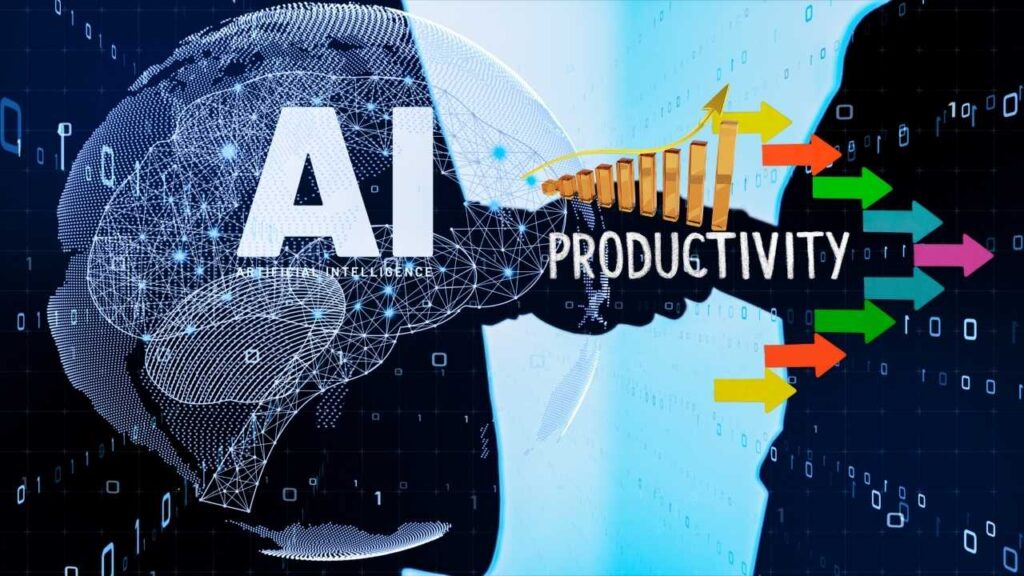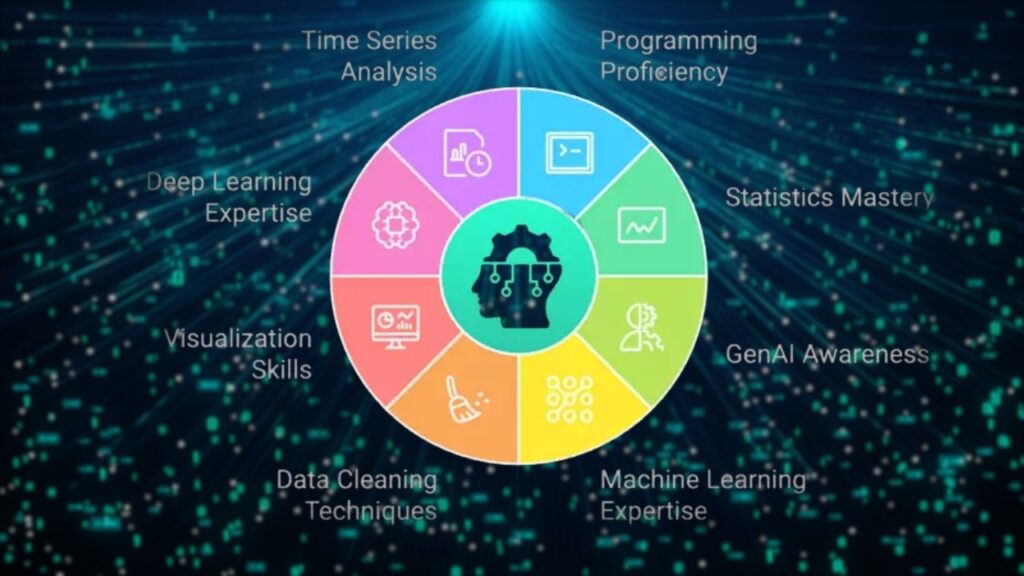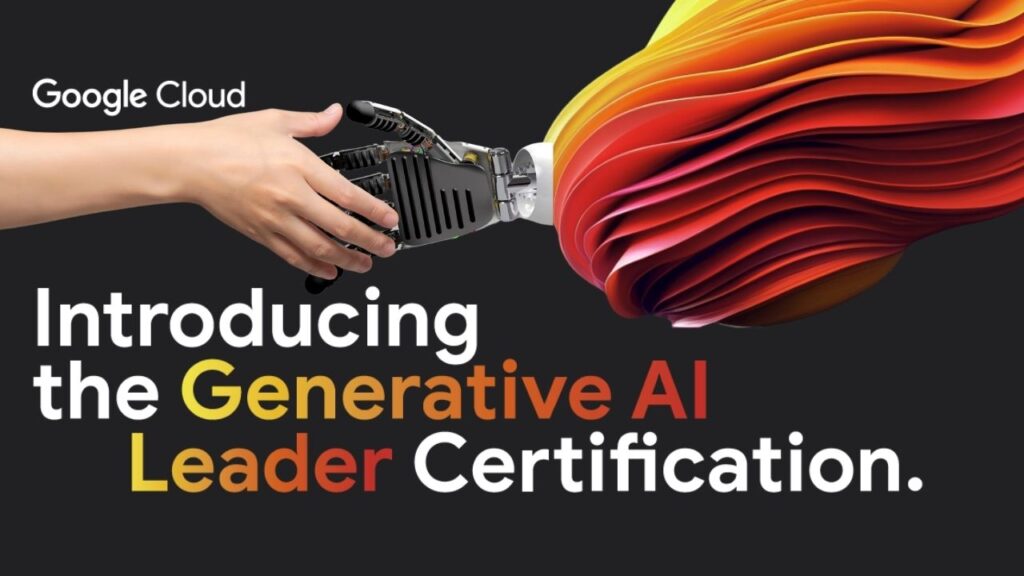AI Linked To Fourfold Increase In Productivity Growth And 56% Wage Premium: Artificial Intelligence (AI) has become a transformative force in the global economy, reshaping how businesses operate and how workers engage with their jobs. According to the 2024 PwC Global AI Jobs Barometer, sectors that have integrated AI technologies report an astonishing 4.8 times higher growth in labor productivity compared to industries less exposed to AI. Additionally, professionals with AI skills enjoy significant wage premiums, with some roles commanding up to 56% higher salaries than their counterparts without these skills.

This article dives deep into the real-world impact of AI on productivity and wages, explaining what the numbers mean, how different industries are affected, and what you can do to stay competitive in this rapidly changing landscape. Whether you’re a student, an experienced professional, or a business leader, understanding the relationship between AI and the workforce is critical to future success.
The 4.8x increase in productivity growth and the up to 56% wage premium for AI-skilled workers highlight a fundamental shift in the global economy. AI is no longer the future—it’s the present, transforming industries, creating opportunities, and rewarding those prepared to embrace its potential.
By understanding AI, building relevant skills, and staying informed, professionals can position themselves to thrive in this new era. Whether you’re a business leader, a job seeker, or simply curious, the message is clear: Investing in AI knowledge and skills today pays dividends tomorrow.
Table of Contents
Why AI Matters For Productivity And Wages
Productivity growth refers to how much output is produced per hour of work. Higher productivity means businesses can deliver more goods or services in less time or with fewer resources, which translates into economic growth and often higher wages.
AI technologies enhance productivity by:
- Automating repetitive tasks such as data entry, customer inquiries, and quality control.
- Improving decision-making through advanced data analytics and predictive modeling.
- Enhancing creativity and innovation by freeing human workers from routine work and enabling them to focus on higher-value tasks.
The PwC study analyzed industries across multiple countries and found that AI-exposed sectors like financial services, information technology, professional services, and healthcare are benefiting the most.
Productivity Growth: The Numbers
- Industries using AI tools extensively have seen a 4.8x increase in labor productivity growth over the past decade compared to those with minimal AI adoption.
- For example, financial services have leveraged AI for fraud detection, risk assessment, and customer service chatbots, accelerating their productivity gains.
- In healthcare, AI-powered diagnostic tools are enabling faster and more accurate patient care, reducing time spent on manual tasks.
The Wage Premium: How AI Skills Boost Earnings

Demand for AI expertise has skyrocketed, leading to significant wage premiums for professionals who can work with AI tools and systems.
According to the PwC report and corroborated by the OECD’s 2023 Skills Outlook, here are some key insights:
- In the UK, roles demanding AI competencies offer an average 14% higher salary, with certain technical roles like database designers and AI engineers commanding premiums of 56% or more.
- In the United States, AI-related roles have grown 3.5 times faster than average job growth since 2012.
- Globally, the wage premium for AI skills ranges between 20% to 56%, depending on role and region.
This wage premium reflects a classic labor market principle: skills that are scarce and highly valuable command higher pay.
Industries Most Impacted By AI
Financial Services
AI helps banks and investment firms analyze large datasets to predict market trends, automate compliance, and detect fraudulent transactions faster than ever before.
- Example: JPMorgan Chase’s COiN AI system reviews legal documents in seconds—a task that once took lawyers thousands of hours.
- AI has contributed to a 40% increase in productivity in some financial operations units.
Information Technology
Software development and IT infrastructure management have adopted AI-powered code assistants, automated testing, and intelligent monitoring tools.
- AI tools like GitHub Copilot help developers write code faster and with fewer errors.
- Cloud providers use AI for optimizing server loads, improving security, and reducing downtime.
Healthcare
AI applications in healthcare include image analysis, predictive diagnostics, personalized medicine, and patient data management.
- AI algorithms can analyze medical images with accuracy comparable to radiologists.
- AI-enabled administrative tools reduce paperwork and streamline workflows.
Manufacturing and Logistics
Smart factories use AI-driven robots and predictive maintenance to enhance efficiency.
- Companies like Siemens and GE deploy AI to predict equipment failures, reducing downtime by up to 30%.
Professional Services
Consulting firms use AI to analyze market data, automate routine client reporting, and optimize business processes.
How To Prepare For The AI-Driven Workforce
The good news is you don’t need a PhD to benefit from AI. Here’s a step-by-step guide to getting AI-ready.
1. Understand the Basics of AI and Machine Learning
Start with foundational knowledge:
- What is AI? Understand concepts like machine learning, natural language processing, and neural networks.
- Use beginner-friendly resources like Coursera’s AI for Everyone by Andrew Ng or Elements of AI by the University of Helsinki.
2. Gain Practical Skills Through Courses and Certifications

Many reputable platforms offer certifications that improve your resume and your actual skills:
- Google AI Professional Certificates
- IBM AI Engineering Professional Certificate
- Microsoft Azure AI Engineer Associate
These programs typically include hands-on labs to build real AI solutions.
3. Build Real Projects and Gain Experience
Apply your skills to real-world problems:
- Create a simple chatbot or automate a repetitive task at work.
- Participate in open-source AI projects.
- Use AI APIs such as OpenAI’s GPT or Google Cloud AI to experiment.
4. Stay Updated On AI Trends and Ethics
AI is evolving quickly, and ethical considerations are essential:
- Follow trusted news sources such as MIT Technology Review, Nature AI, and the OpenAI blog.
- Understand AI bias, privacy, and legal implications to become a responsible AI practitioner.
What Employers Are Looking For
In addition to technical skills, employers seek:
- Problem-solving skills: Can you apply AI tools to solve real business challenges?
- Communication skills: Explaining AI concepts to non-technical stakeholders.
- Ethical awareness: Ensuring AI applications comply with fairness and privacy standards.
A 2023 LinkedIn report confirms that “AI literacy” is among the fastest-growing skill requirements across diverse sectors.
Real-World Example: Small Business Success With AI
Consider Leah, a small retailer who integrated AI-powered analytics and chatbots into her e-commerce site:
- She cut customer response times in half using a chatbot powered by natural language processing.
- Sales increased by 20% within six months by analyzing customer behavior to target marketing efforts.
- Automation reduced her staffing costs without sacrificing service quality.
Her story shows that AI is not only for tech giants; small and medium businesses can leverage AI for tangible benefits.
Study Measures Thermodynamic Properties of Quark-Gluon Plasma With New Precision
New Geopolymer Tech Transforms Glass and Waste Into Ultra-Durable Green Building Material
AI-Driven Models Accelerate Molecular and Materials Discovery in Biomedical Research
FAQs About AI Linked To Fourfold Increase In Productivity Growth And 56% Wage Premium
What is the difference between AI and Machine Learning?
AI refers broadly to computer systems that perform tasks requiring human intelligence, such as understanding language or recognizing images. Machine learning is a subset of AI where machines learn patterns from data to make predictions or decisions.
Is AI likely to replace my job?
While AI will automate some routine tasks, it will also create new roles requiring human creativity, emotional intelligence, and oversight. Continuous learning and adaptation remain key to job security.
How do I find AI-related job opportunities?
Look for job titles like AI Engineer, Data Scientist, Machine Learning Specialist, or Business Analyst with AI skills on platforms like LinkedIn, Indeed, or Glassdoor. Job descriptions often mention skills like Python, R, TensorFlow, or experience with AI platforms.
Are AI skills only relevant to tech jobs?
No. Many roles in marketing, finance, healthcare, education, and customer service increasingly require AI literacy to enhance decision-making and efficiency.



















